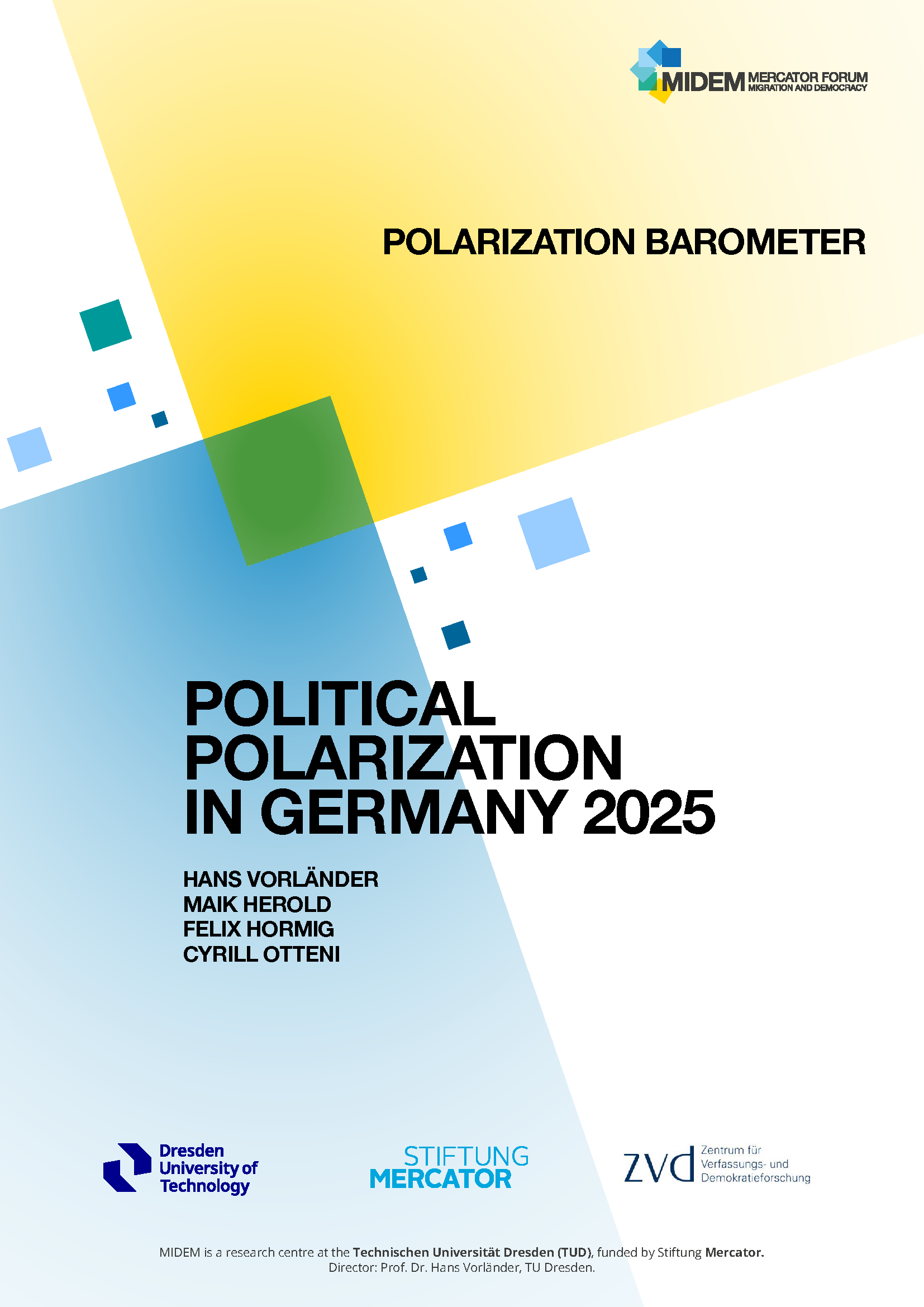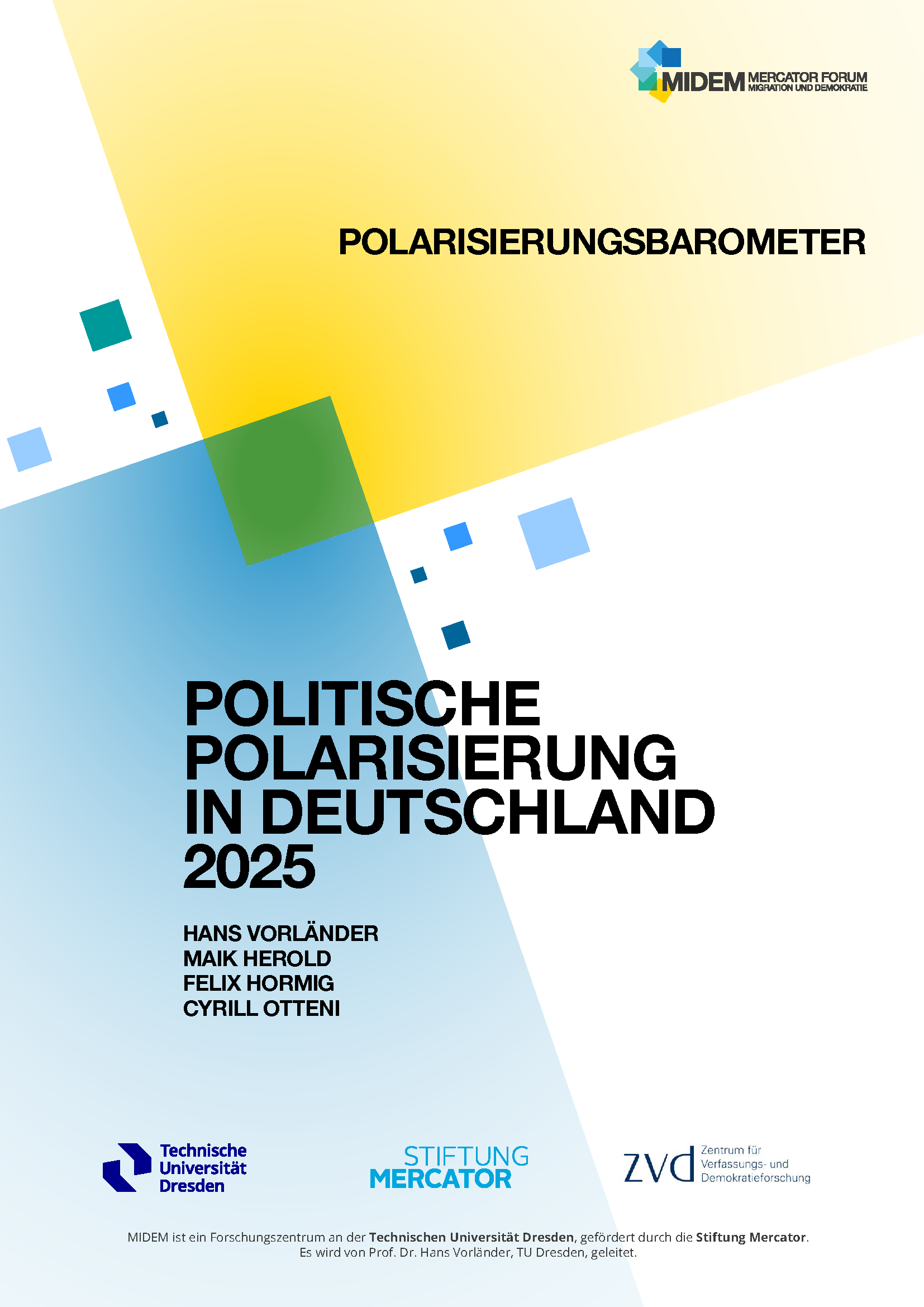Publikationen

Publikationen

Studien
Polarization Barometer 2025
How divided is Germany – and over what issues?The short version of the Polarization Barometer 2025 presents the key findings for Germany. It shows where differences of opinion put democratic cohesion at risk – and where intense debates remain possible without tearing society apart.
Mehr erfahren

Studien
Polarisierungsbarometer 2025
Mehr als 81 Prozent der Deutschen nehmen die Gesellschaft als gespalten wahr. Dabei wird dem Thema Zuwanderung das größte Spaltungspotenziel zugeschrieben. Das stärkste Maß an ideologischer Polarisierung kommt den Themen Klimaschutzmaßnahmen und Unterstützung der Ukraine zu. Zusammen mit dem Thema Zuwanderung ist hier auch die höchste affektive Polarisierung festzustellen. Das zeigt das Polarisierungsbarometer des Mercator […]
Mehr erfahren

Studie
75 Jahre Grundgesetz
Mehr erfahren

Studie
Polarization in Europe – Quantitive Analysis by Country
In 2023, the Mercator Forum Migration and Democracy (MIDEM) published the study Polarization in Europe. A comparative analysis of ten European countries, which for the first time examined so-called issue-related affective polarization on a larger scale. The data is based on an online survey of over 20,000 respondents in 10 European countries. The focus was […]
Mehr erfahren

Studie
Polarisierung in Deutschland und Europa
Wenn sich Personen in wichtigen gesellschaftspolitischen Fragen mit emotionaler Ablehnung begegnen, kann von affektiver Polarisierung gesprochen werden. Viele befürchten, dass derartige Polarisierungsprozesse die Demokratie und den sozialen Zusammenhalt bedrohen. Doch wie polarisiert sind Deutschland und Europa wirklich? Und welche Themen stehen dabei im Vordergrund? Das Mercator Forum Migration und Demokratie (MIDEM) zeigt die Konfliktlinien und […]
Mehr erfahren

Studie
Polarization in Europe
Affective polarization occurs when people are emotionally opposed to each other on important socio-political issues. Many fear that such polarization processes threaten democracy and social cohesion. But how polarized are Germany and Europe really? And which issues are at the forefront? The Mercator Forum Migration and Democracy (MIDEM) shows the lines of conflict and divisive […]

